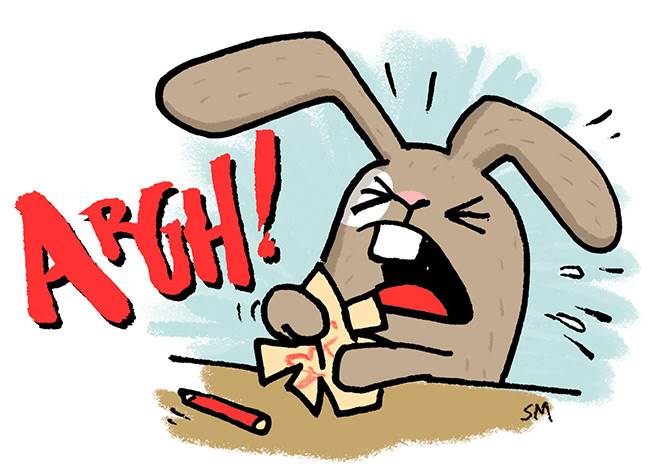Let's embrace our bad drawings
Published on: 13 March 2017 Author: Sarah McIntyre
The immensely talented and down right wonderful illustrator Sarah McIntyre, who's work includes Jampires and There's a Shark in the Park, became our fifteenth Writer in Residence back in 2017. In this blog Sarah told us why we should embrace our bad drawings.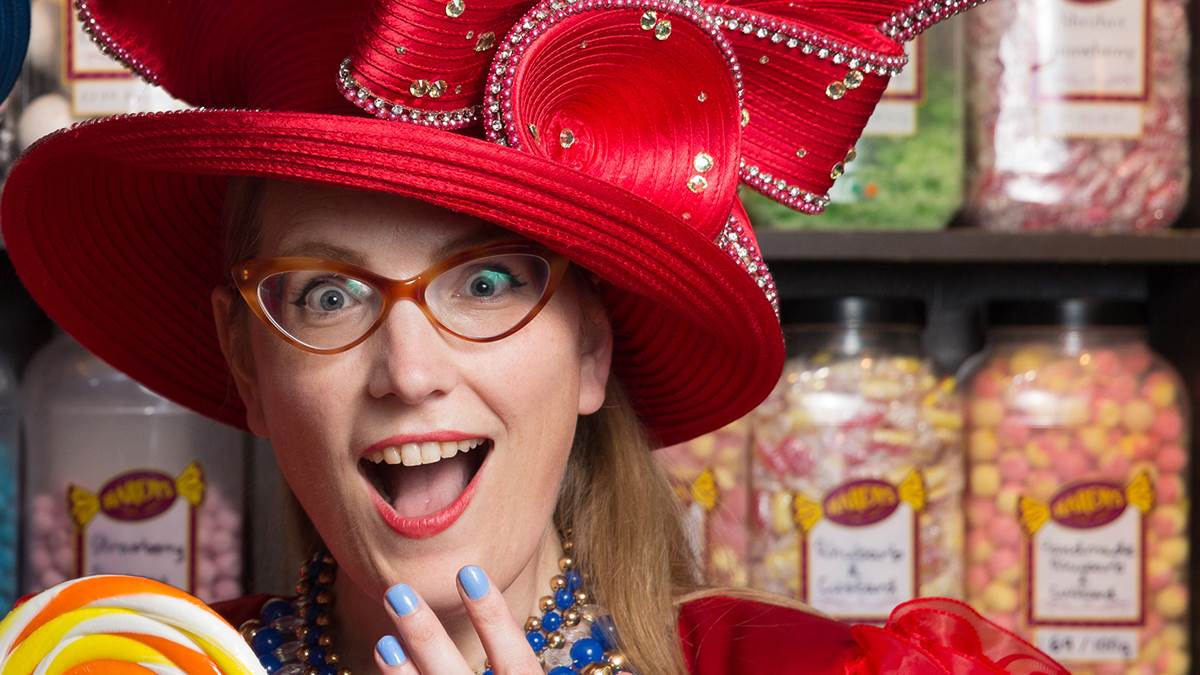
You should be really proud of your drawings - even if you don't think they're 'perfect' (pssst: turns out there's no such thing).
People can be very hard on their drawings in a way that they would never worry about, say, writing a Facebook status update. They'll happily type out a paragraph with hardly a thought, but they won't dash off a drawing in the same way.
A lot of people think a 'good' drawing is something that looks photorealistic. But learning how to draw just like a photo is only one way of drawing. Sometimes quick, whimsical doodles can be funnier and communicate more. And drawing something in a way you've never drawn before - being a bit slapdash, exaggerating something, trying out new drawing tools - can give you unexpectedly interesting techniques that you can use again later.
Treat your drawing like a child
If you find you never get around to drawing, or it just frustrates you, try a new approach: be a bit more gentle with your drawings. They're your vulnerable creations, so treat them like you might a child:
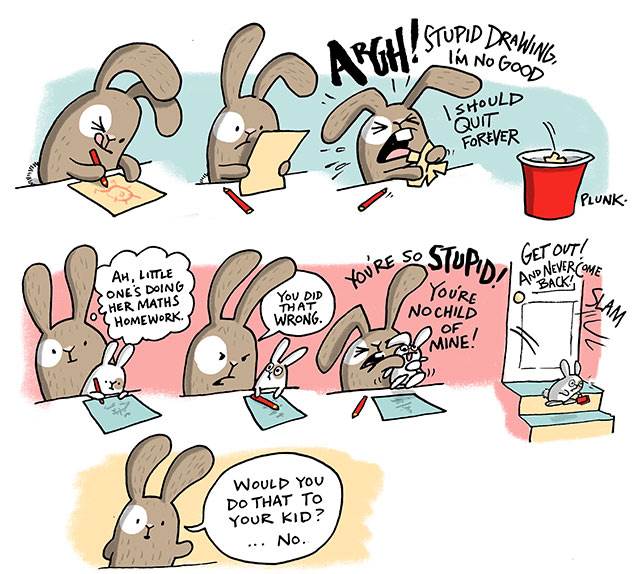
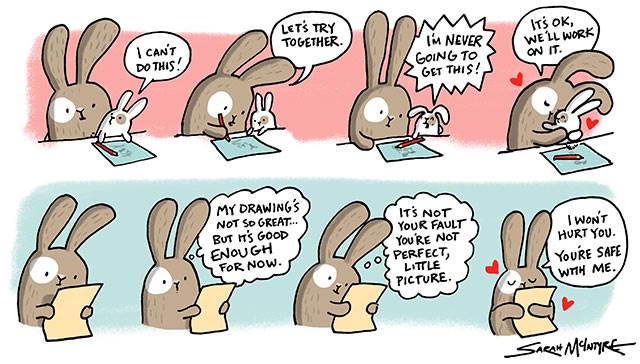
Seriously, try this: when you want to squash up your picture in a ball, pause for a moment, and give it an actual hug. Imagine it's tried its hardest, and you want to encourage it. Don't throw it in the bin: put it away. Even professionals can't always see their drawings clearly right after they've drawn them.
A few days later, I'll come back and a drawing will look very different: I might like it more, or I might see something I can do to improve it that I didn't notice earlier. One of the great things about keeping an artwork blog is realising that my drawing actually does improve over the years.
'Good enough for now'
Being kind to your artwork isn't the same as being uncritical. When I'm paid to draw a picture or illustrate a book, some of the drawings might not make the cut. And I need a good editor to catch any inconsistencies. (Have I forgotten someone's tail? Drawn someone's shirt with the stripes going the opposite direction than they went on the previous page?)
But it still helps me to think that it's not the drawings' fault (and even the drawings I don't use), and to treat them kindly.
When I started blogging, I challenged myself to post a drawing every day, whether I liked the drawing or not. And that helped me get over being too precious about each one, in a way a parent might not worry too much if a kid's shirt looks a bit wrinkled or they didn't quite hit all the notes while singing a song.
If you punish yourself for every drawing, it may stop you from trying new things; you'll either stick with what you feel safe drawing and get bored, or stop altogether. Holding on to the mantra 'Good enough for now' isn't a sign of weakness.
Give your drawings some friends
Some of my friends (including ones you probably think draw perfectly) are savage about what they draw, and hearing them, it hurts my heart. Often their work is far better than they realise, it's just that they have a certain kind of art they like and it doesn't imitate that kind of art closely enough. I want to take it away from them and give it a little cuddle, and let it know it's appreciated.
My advice: don't let your drawings languish all alone in your sketchbook; give them friends. Do we need our friends to be perfect? No, we have friends who have crooked teeth, sticky-up hair, a lazy eye, or whatever. It gives them character; we love them all the more for it.
Your drawings don't have to be perfect, either - accept they might be a bit wonky, and keep drawing.
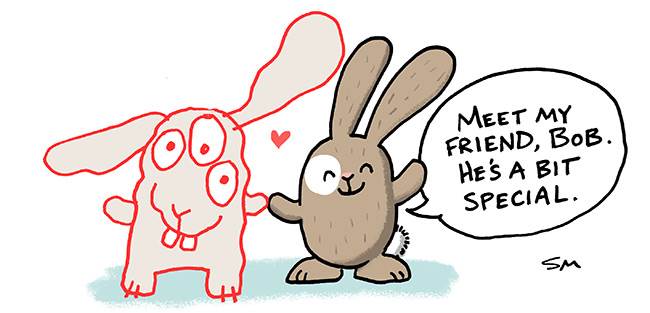
Topics: Writer in Residence, Features

